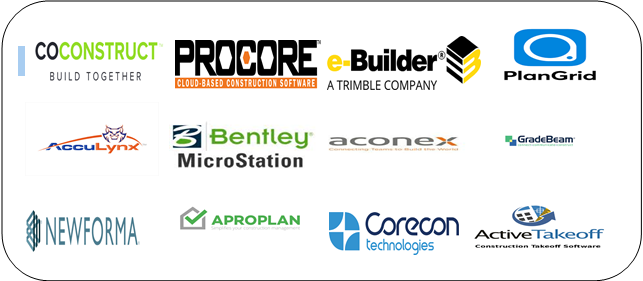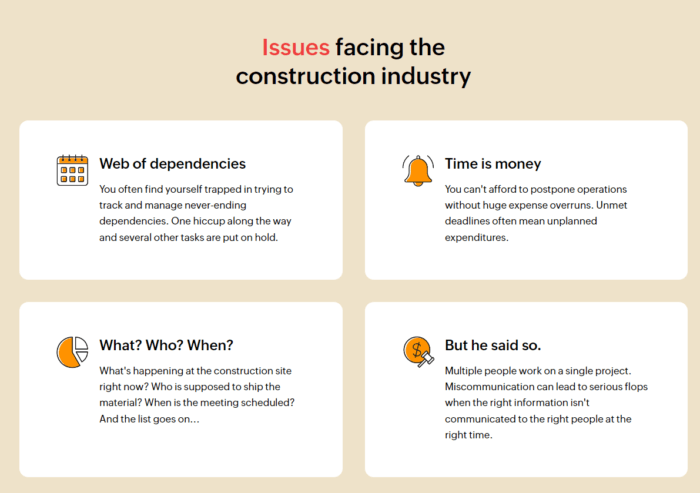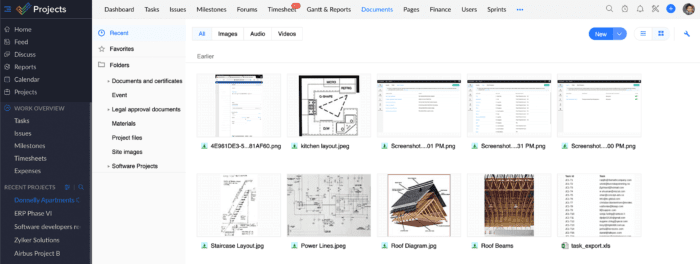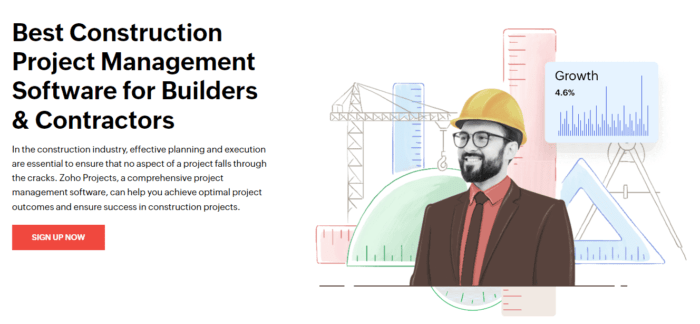Construction Project Management Software

Construction Project Management Software
In the world of construction, managing projects efficiently is crucial for success. Construction projects involve multiple tasks, numerous stakeholders, and complex timelines. To streamline these processes and enhance productivity, construction project management software has become an indispensable tool. In this article, we will explore the benefits of using construction project management software and how it can revolutionize the way construction projects are planned, executed, and monitored.
1. Introduction
Construction project management involves coordinating various aspects of a construction project, including planning, resource allocation, scheduling, budgeting, and communication. The traditional methods of managing construction projects using manual processes and spreadsheets are time-consuming, error-prone, and lack real-time visibility.
Top Software for Construction Project Management at a Glance

2. The Importance of Construction Project Management
Efficient project management is essential for the successful completion of construction projects. It helps in optimizing resources, minimizing delays, ensuring cost control, and maintaining quality standards. Effective project management also improves communication and collaboration among team members and stakeholders.
3. Challenges Faced in Construction Project Management
Construction projects face several challenges, such as complex project structures, changing requirements, unforeseen delays, and coordination among multiple teams. Without proper management, these challenges can lead to cost overruns, schedule delays, and compromised project quality.

4. What is Construction Project Management Software?
Construction project management software is a specialized tool designed to streamline project management processes in the construction industry. It provides a centralized platform for project planning, scheduling, document management, communication, and collaboration. The software automates manual tasks, enhances data accuracy, and improves project visibility.
5. Key Features
- Project Planning and Scheduling: Create and manage project schedules, assign tasks, and track progress.
- Document Management: Store, organize, and share project-related documents, drawings, and specifications.
- Communication and Collaboration: Facilitate seamless communication and collaboration among team members, subcontractors, and clients.
- Budgeting and Cost Control: Track project expenses, monitor budgets, and generate financial reports.
- Resource Management: Allocate and manage resources effectively, including labor, equipment, and materials.
- Risk Management: Identify and mitigate potential risks to avoid project disruptions.
- Reporting and Analytics: Generate comprehensive reports and gain insights into project performance.
6. Benefits
- Improved Efficiency: Automation of manual processes reduces administrative work and enables efficient resource utilization.
- Enhanced Communication: Real-time collaboration and communication features foster better coordination among project stakeholders.
- Increased Productivity: Streamlined workflows and better task management contribute to improved productivity and timely project completion.
- Cost Control: Effective budget tracking and expense management help control costs and prevent overruns.
- Risk Mitigation: Early identification and mitigation of risks minimize the impact on project timelines and budgets.
- Centralized Data: A centralized platform ensures easy access to project-related information, reducing delays and errors.
- Scalability: Construction project management software can be tailored to suit projects of various sizes and complexities.
- Reporting and Insights: Advanced reporting and analytics features provide valuable insights for informed decision-making.
7. How to Choose the Right
When selecting, consider the following factors:
- Project requirements and complexity
- User-friendliness and ease of adoption
- Customizability and scalability
- Integration capabilities with existing software
- Vendor reputation and customer support
- Security and data protection measures
- Cost and return on investment
8. Implementation
Successful implementation requires careful planning and execution. It involves defining project objectives, configuring the software to meet specific requirements, training users, and ensuring seamless integration with existing systems.
9. Case Studies: Successful Implementations
[Include a few case studies showcasing how construction project management software has benefited real projects.]10. Integration with Other Construction Software
It can integrate with other software tools commonly used in the construction industry, such as accounting software, estimating software, and Building Information Modeling (BIM) tools. Integration enables data sharing, reduces duplicate data entry, and improves overall project efficiency.
11. Future Trends
The construction industry is continually evolving, and so is the technology that supports it. Some future trends include:
- Integration with Internet of Things (IoT) devices for real-time data collection
- Artificial intelligence and machine learning for predictive analytics and risk assessment
- Mobile applications for on-site project management
- Virtual and augmented reality for enhanced project visualization and collaboration
12. Security and Data Protection
It should prioritize the security and protection of sensitive project data. This includes implementing secure access controls, data encryption, regular backups, and compliance with data privacy regulations.

13. Cost Considerations
The cost of construction project management software varies based on factors such as the number of users, features included, and deployment options (cloud-based or on-premises). Consider the software’s cost in relation to the expected benefits and return on investment.
Best Construction Project Management Software for Builders & Contractors

14. Conclusion
Construction project management software has revolutionized the way construction projects are planned, executed, and monitored. It offers numerous benefits, including improved efficiency, enhanced communication, increased productivity, and better cost control. By choosing the right software and implementing it effectively, construction companies can overcome the challenges in project management and achieve successful project outcomes.








